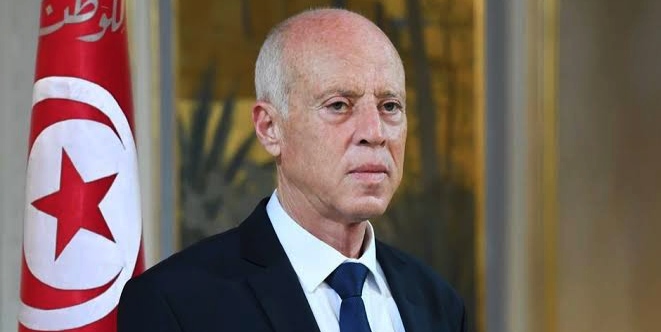By John Ikani
President of Tunisia, Kais Saied has been celebrating his apparent victory in a referendum on a new constitution that gives him almost unlimited powers.
Mr Saied appeared in front of jubilant supporters in the early hours of the morning – after an exit poll indicated that more than 90% of those who had voted supported the president’s plan.
The turnout was low – about one in four voters took part as opposition parties staged a boycott, accusing Mr Saied of taking Tunisia back towards autocracy.
Mr Saied said it would have been higher if voting had taken place over two days.
Under Saied’s own rules for the referendum, no minimum level of participation is needed to approve the new constitution.
They only stipulate it will come into effect once the final results are published and do not say, what happens if voters reject it.
The president’s popularity appears to have waned since he suspended parliament and sacked the government a year ago.
He promised that Tunisia would now enter a new phase after a decade of political deadlock that followed the Arab Spring of 2011.
The new constitution allows Saied to continue to rule by decree until legislative elections are held in December
The previous constitution, adopted in 2014, gave incontestable rights and liberties to citizens and especially to minorities.
It separated the powers of the president, government and parliament, with institutions to watch over with checks and balances
Under the old constitution, the judiciary was independent.
The new constitution puts executive, legislative and judicial powers in the hands of the president.




































